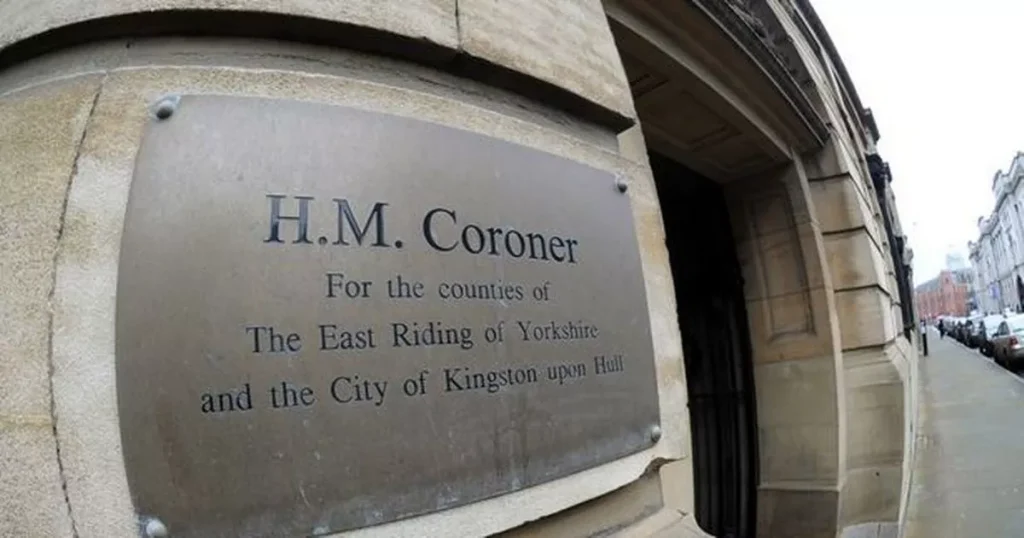David Lodge, a 40-year-old man with complex medical needs including dysarthria, dyspraxia, blindness, autism, and immobility due to a previous bout of pneumonia, was found by his sister lying on the floor next to his deceased father, Peter Lodge. David, unable to communicate verbally and reliant on a wheelchair, had likely been on the floor for several days, leaving him severely dehydrated and hypothermic. He was rushed to Hull Royal Infirmary, where the tragedy of his father’s passing was compounded by a series of medical failings that ultimately led to his own death.
Upon arrival at the hospital, David’s pre-existing conditions, combined with his distress at the medical setting, necessitated sedation before a thorough examination could be conducted. While he was initially sedated, crucial observations and interventions were delayed. A concerningly high NEWS (National Early Warning Score), indicating a serious deterioration in his condition, was recorded but not acted upon with the urgency it demanded. A consultant, despite the clear indicators of David’s deteriorating state, failed to perform a full examination, overlooking critical aspects of his condition, particularly the risk of pneumonia, a condition he had suffered from previously.
The inquest into David’s death revealed a cascade of errors that contributed to this tragic outcome. The administration of a sedative, lorazepam, without the knowledge of the attending physician, further complicated his condition. This decision, coupled with the failure to transfer him to the Intensive Care Unit (ICU) despite his alarmingly high NEWS score, proved fatal. The AAU doctor, unaware of the additional sedation, would have prevented the transfer had she known, recognizing the increased risk it posed. Expert testimony presented at the inquest confirmed that these omissions, particularly the failure to admit him to the ICU, significantly contributed to David’s cardiac arrest and subsequent death.
Further expert analysis confirmed that David’s life could have been prolonged had he received the appropriate intensive care. The coroner’s conclusion of neglect underscores the severity of the systemic failures within the hospital system. The inquest highlighted a critical lack of communication and coordination among the medical staff, a failure to escalate concerns based on the patient’s deteriorating condition, and an inadequate understanding of David’s complex needs due to his communication difficulties.
The family’s legal representation emphasized the tragic circumstances of David’s death, highlighting the multiple missed opportunities to intervene and prevent this avoidable loss. David’s sister, who discovered both her brother and father, was left to grapple with the immense grief of losing both family members within days, a tragedy exacerbated by the knowledge that David’s death could have been prevented. The family’s statement poignantly reflects on David’s lifelong battle against not only his physical limitations but also the societal misunderstanding of those with communication difficulties. They stressed that his inability to speak did not diminish his capacity to think and feel, a crucial detail overlooked in his care.
In response to the inquest’s findings, a Prevention of Future Deaths report was issued, addressing several critical concerns raised by David’s case. These include the inadequate assessment of pain in individuals with communication impairments, the failure to conduct basic examinations for patients with learning disabilities at risk of pneumonia, the lack of appropriate escalation procedures for high NEWS scores, and the missed opportunities for learning from serious incidents within the hospital. The report underscores the need for systemic changes within the healthcare system to ensure that individuals with complex needs receive the appropriate and timely care they deserve. The Hull Teaching Hospitals NHS Foundation Trust expressed condolences and committed to responding to the Coroner’s report, acknowledging the need for improvements in their processes. The tragic case of David Lodge serves as a stark reminder of the importance of patient-centered care, particularly for vulnerable individuals with complex communication and medical needs.














